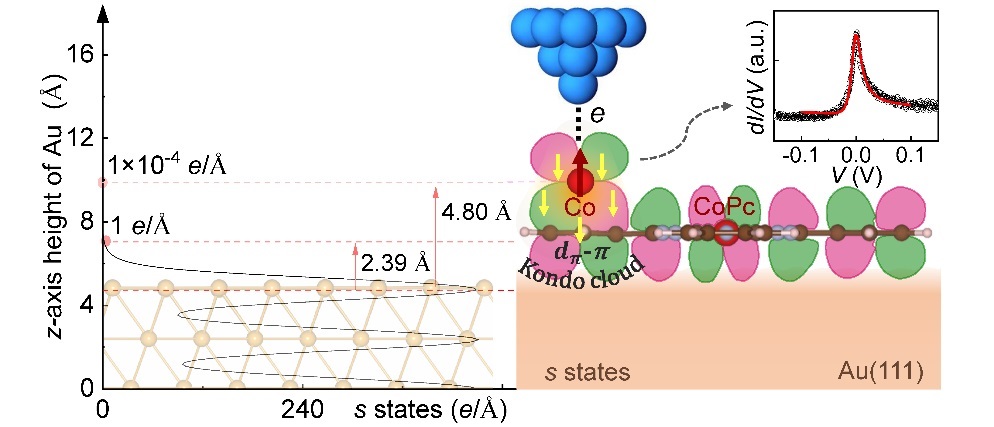
Recently, a research group led by Prof. LI Xiangyang from the Hefei Institutes of Physical Science of the Chinese Academy of Sciences, have made a new discovery: a single organic molecule can induce the Kondo effect in a magnetic atom, challenging the long-standing belief that this quantum phenomenon requires a vast sea of metallic electrons.
The research results were published in Physical Review Letters.
The Kondo effect, is a quantum many-body phenomenon where conduction electrons in a metal collectively screen the magnetic moment of a localized impurity atom. It has been helping to explain strongly correlated electron behavior and inspiring advances in nanoscience, molecular electronics, and quantum information research. Traditionally, it was believed that this effect could only emerge in systems with a large reservoir of metallic electrons, making the new results especially striking.
In this study, the researchers demonstrated that cobalt phthalocyanine (CoPc) molecules deposited on a metallic substrate can act as an itinerant-like electron reservoir to screen the spin state of a cobalt atom, creating the first "molecular Kondo box." First-principles calculations and experimental validation revealed that in the Co–CoPc/Au(111) system, the π-electron states of the CoPc molecule hybridize with conduction electrons of the Au(111) substrate. This hybridization allows the molecule' s own π-electrons to exhibit itinerant-like behavior. These π-orbitals strongly overlap with the symmetrically matched dπ orbitals of the cobalt atom, suppressing competing screening from the metallic substrate and enabling the formation of a Kondo singlet at the molecular scale. Remarkably, the corresponding Kondo temperature can be precisely tuned by controlling the number of cobalt atoms and the overall symmetry of the molecular system.
This discovery not only expands the fundamental understanding of Kondo physics but also demonstrates a new level of stability and tunability in spin states, according to the team.

Illustration of a molecular Kondo-box singlet formed by large orbital overlap between symmetry-matched dπ and π orbitals in an atomic/molecular system on a metal surface. (Image by Li Xiangyang)